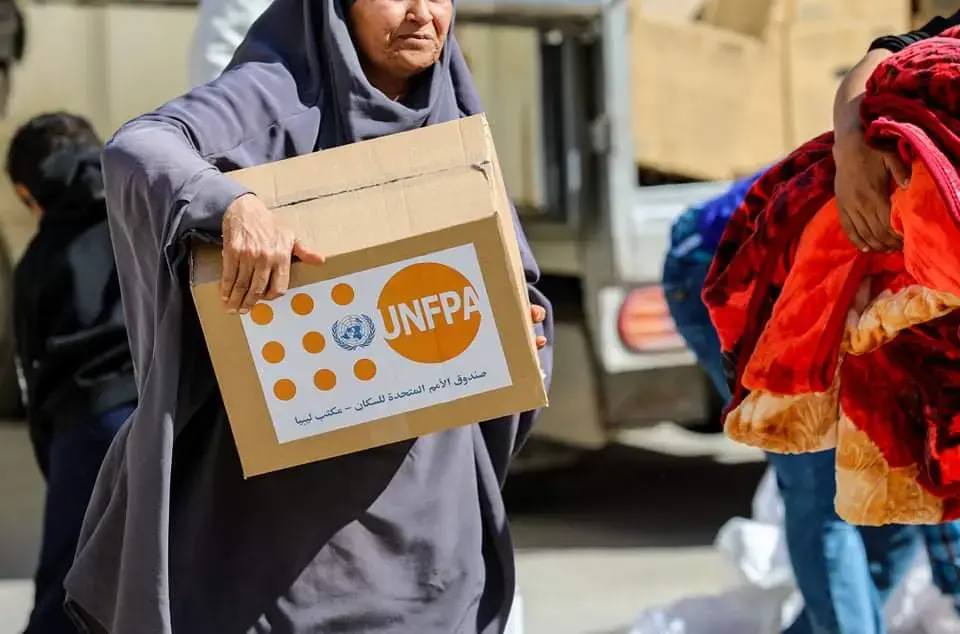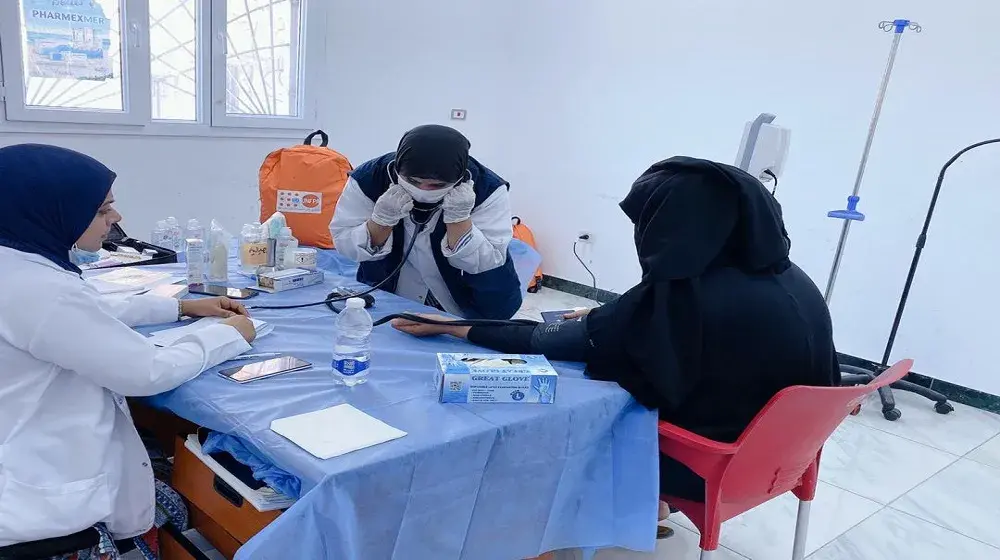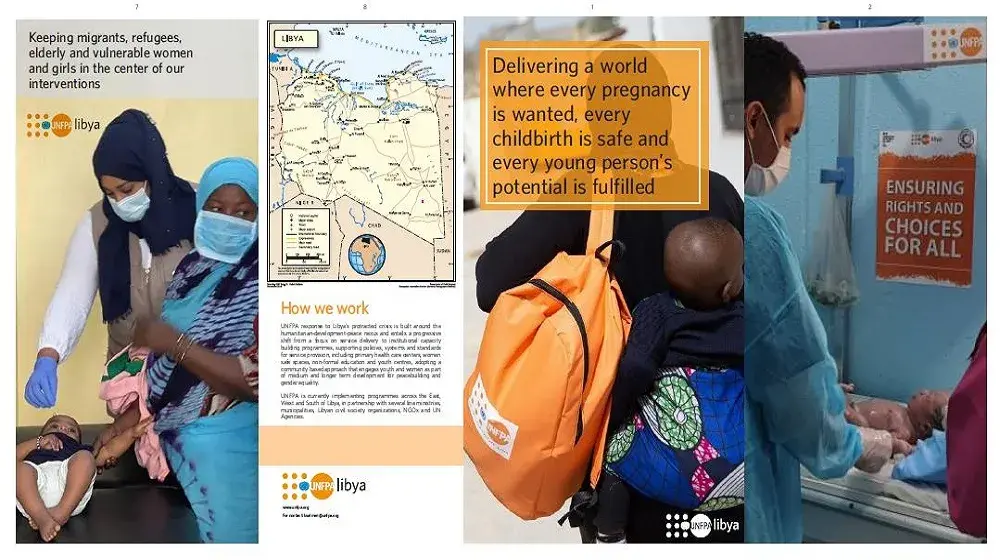UNFPA Libya
UNFPA response to Libya’s protracted crisis is built around the humanitarian-development-peace nexus and entails a progressive shift from a focus on service delivery to institutional capacity building programmes, supporting policies, systems and standards for service provision, including primary health care centers, women safe spaces, non-formal education and youth centers, adopting a community based approach that engages youth and women as part of medium and longer term development for peacebuilding and gender equality.
UNFPA has been implementing the 1st Country Programme Document (CPD) as per the UN Strategic Framework 2019-20 in Libya. The CPD contributes to two out of the three outcomes of this framework, namely strengthening Libyan institutions and civil society and improving Libyan institutions capacity to design and implement social policies that focus on quality service delivery. Under the CPD, UNFPA in Libya implemented 1) Sexual and Reproductive Health and Rights, 2) Gender-Based Violence, 3) Youth and 4) Population Dynamics programmes in the East, West and South of Libya, in partnership with several line ministries, municipalities, Libyan civil society organizations, NGOs and UN Agencies. The current CPD has been extended until the end of 2022.
UNFPA is looking forward to implementing the vision of UNFPA strategic Plan 2022-25 in Libya. The overall goal of the UNFPA strategic plan, 2022-2025 is to “achieve universal access to sexual and reproductive health, realize reproductive rights, and accelerate progress on the implementation of the Programme of Action of the International Conference on Population and Development”. The main target groups for the strategic plan are women, adolescents and youth. The strategic plan applies a life-course approach, recognizing that people have different and changing needs throughout their lives, from birth through adolescence, at different stages of their reproductive lives, and into old age.





